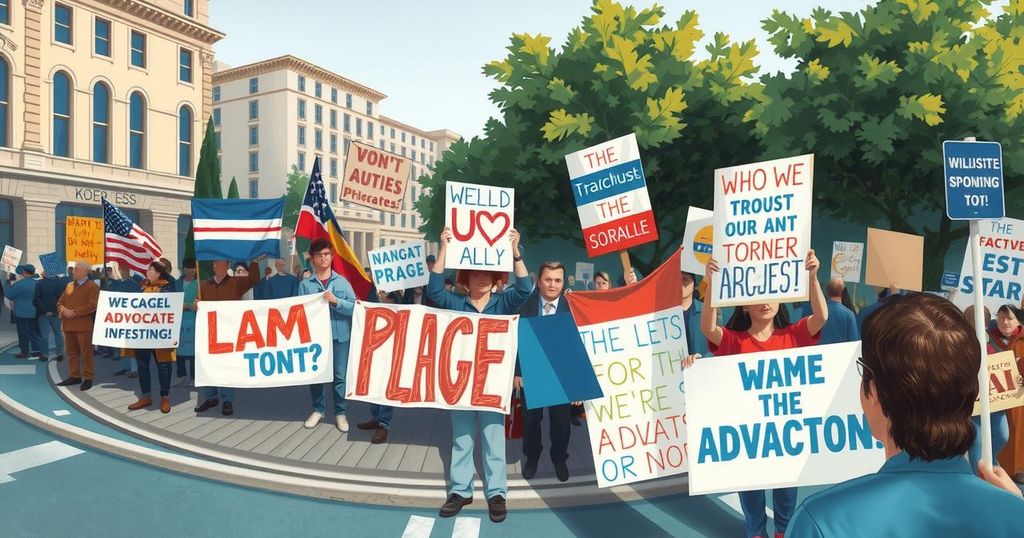Mahmoud Khalil, a former UNRWA employee and anti-Israel protester at Columbia University, faces deportation amid allegations that his protests contradict U.S. national interests. Khalil’s background includes a UK government position that required rigorous security clearance before moving to the U.S. for further studies. His activism has attracted significant attention, raising issues surrounding free speech and immigration law under the Trump administration.
Mahmoud Khalil, a detained anti-Israel protester and former UNRWA employee, is a graduate student at Columbia University. He previously held a significant position within the UK government focused on Syria, necessitating a comprehensive background verification and security clearance prior to his engagement with UNRWA, where he served from June to November 2023.
Khalil, who was born in a Palestinian refugee camp in Syria, migrated to Lebanon at 18 due to civil unrest. He completed an undergraduate degree in computer science in Beirut before securing a diplomatic role in the UK’s office for Syria. Subsequently, he moved to the US for a master’s degree in public administration.
Involved in substantial anti-Israel protests on Columbia’s campus, Khalil coordinated with the Columbia United Apartheid Divest group. His activism included leading demonstrations and debates, often presenting a strong anti-Israel stance. Following violent protests, Khalil has been at the center of national discussions concerning deportation laws under the Trump administration.
Despite not facing criminal charges, his activism has resulted in ICE detaining him due to reasons relating to national interest. After marrying Noor Abdalla, a US citizen, in 2023, Khalil’s legal status was solidified as a permanent resident, complicating his deportation case. Khalil’s lawyers contend that his First Amendment rights are being violated, equating his activism to free speech.
His wife, a dentist, expressed disbelief over the seriousness of his deportation concerns before his arrest, indicating their near future parenthood adds to the urgency of his legal situation.
Ultimately, Khalil’s case raises significant questions regarding free speech, national security, and the intersection between activism and immigration law, especially concerning a public figure entwined in geopolitical conflicts.
The case of Mahmoud Khalil presents a complex intersection of immigration law, national security, and free speech. His role as an activist with connections to the UN and previous employment with the UK government highlights the layers of his background, while ongoing legal battles reflect broader implications for similar activists. As he navigates these challenges, the legal outcomes may set precedents for the treatment of outspoken activists within the context of U.S. immigration policies.
Original Source: nypost.com






